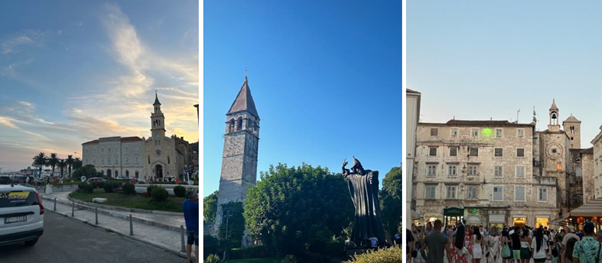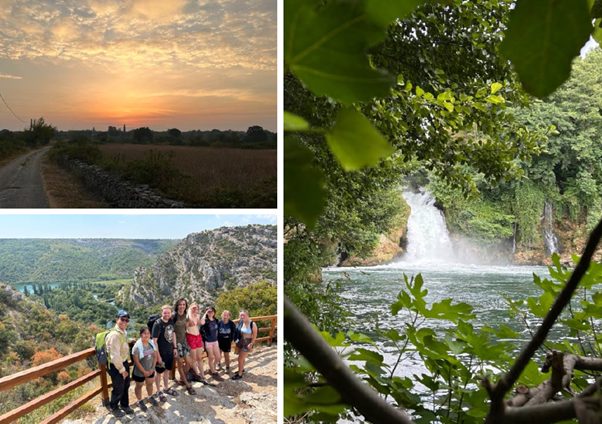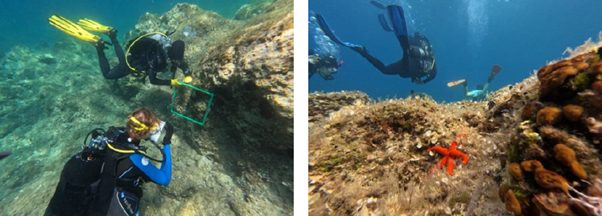

I was fortunate enough to find a place to stay in Split, Croatia for two days before embarking on the mixed terrestrial and marine expedition with Operation Wallacea. During these few days I visited the Old Town, the Diocletian Palace, and many museums and guided tours. If you have the chance to spend time in the country of your choice before or after your expedition, I highly recommend it, as travelling abroad solo is an exciting and new experience for a lot of people, and the camp takes place during the summer, so you’ll want to make the most of your stay in whichever country you decide to travel to.

Meeting a new group of people can be a daunting experience, especially if you don’t know what or who you are looking for (assuming, like me, you had no contact with other students on your expedition beforehand). I quickly found that the group I was to stay with for the next two weeks were a very fun and welcoming group of people that I would grow very close to over the two weeks.
Upon arrival at the base (Krka), the researchers took us for a tour and gave us the ground rules of how to look after the site, the equipment we would be using and places we were and were not allowed to go. It was here that we were also divided into three groups that would change tasks on a rota every day for the week. Over the course of the two weeks, I kept a log of the activities we did, and the knowledge gained from each day and experience.

Activities were done in our individual groups, and ranged from taking transects of nearby vegetated areas, to seminars where we would come up with creative solutions to challenges discussed in lectures. These lectures occurred once a day as a collective group where each of the researchers on site would tell us about their projects and what ecosystems and families they specialise in. Whole group excursions started on the fourth day, where we took a minibus to some off-site caving locations and some waterfalls. On the last day we took a bus from base deep into Krka National Park where we saw the great valleys and waterfalls upstream from the OpWall research site. Here we walked around the tourist area and got on a boat to the North-most bank of the basin, where we swam in the refreshingly cool waters, hiked up to a few caves on the hillside and had some ice cream.
Silba Island was an incredible addition to this summer experience. Luckily all my peers who were with me at Krka remained for the week at the marine site. The base on Silba was more open than the one on Krka, with much more outdoor space, and the town was very close in comparison, so we often went out for ice cream after dives or after dinner. The activities on Silba involved lectures that took place in the evenings when it was cooler, a beach clean-up and the daily water run from base to the beach to collect water for facilities on base, as well as research dives and snorkelling.

My two-week experience with Operation Wallacea was the most memorable part of my summer holiday this year. I met people who share similar interests to myself, worked with professionals and researchers in the field as an equal, and I got to interact with so many different creatures, habitats, and ideas. I hope to use the skills and knowledge I have gained from my experience in my degree and later during my career.
Photos by Tate Nursey. Title photo by Frances Budd @fkpbudd
Social Media Links